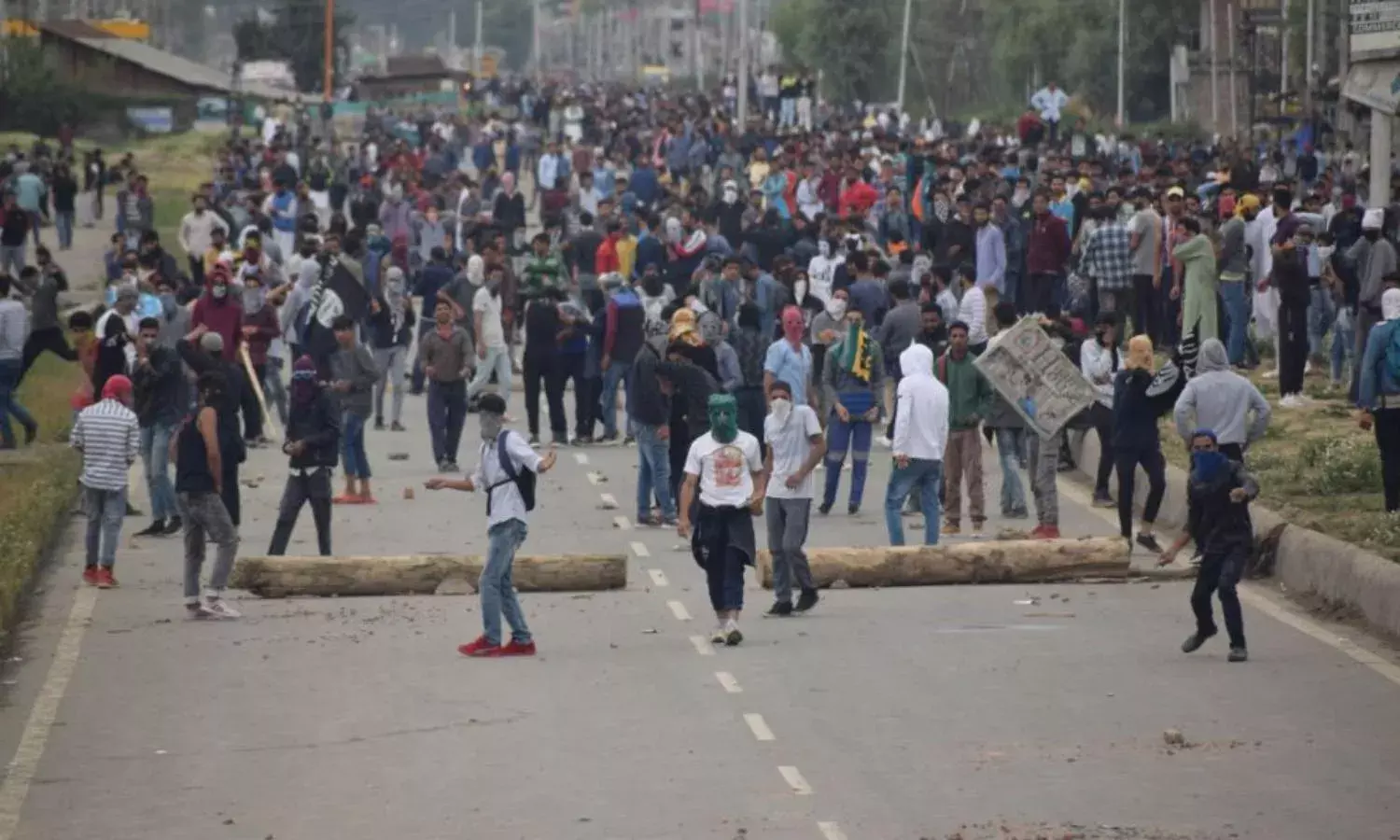
Based on precedence, it was entirely predictable that the Ramzan suspension of operations would be yet another wasted opportunity in Kashmir.
The earlier ebbs in operations and list of interlocutors are rather well recorded to bear recounting here. It was predictable also on account of the BJP’s showing in power as a party that places the interest of the Parivaar over the national interest. This is best signified by the BJP walking out of the coalition in J&K as it heads into national elections.
Even more so, it was predictable in light of the national security establishment being bereft of strategic sense over the term of its presiding deity, Ajit Doval. A Ramzan ‘ceasefire’ extended into a prospective Amarnath Yatra ‘ceasefire’, alongside an ongoing return to the ceasefire on the Line of Control (LC), could have capitalized on gains from Operation All Out. This could have been gainfully used by special interlocutor Dineshwar Sharma to position his peace cart.
That said, it must be admitted there is a strategy at play, albeit a perverse one.
As General Hasnain – a veteran of a previous suspension of operations - reminded all at the outset of this round of suspension of operations that the temporary halt is limited to offensive operations of the area domination variety, with defensive, protective, responsive and intelligence-based operations continuing.
Rationalising the ceasefire, experts let on that at the operational level it is a period of consolidation for integrating the intelligence picture; allowing troops a respite; and coordinating between security agencies that could then be used to reenergize operations when called off. Evidence is in the drawing up of a list of 21 most wanted and the dispatch of an Islamic State affiliated terrorist soon after the ending of the ‘ceasefire’.
The militants (and terrorists) - for their part - might be tempted to let down their guard, such as by visiting families, enabling an enhanced intelligence picture. A lower profile of military operations would also put a lid on stone throwing, useful at a time when passions could be expected to be higher in the holy month. So there was little to lose operationally.
At the strategic level, the moves to sedate Pakistan have been on since the end of winter. A ceasefire on the LC has the advantage of enabling greater rigour in counter infiltration. Firing, of the level of artillery duels, has the effect of keeping heads down, enabling disruption of the fence and the surveillance along it. Pakistan, having faced the brunt and believing that it gave back as good as it received, fell in line. The operational level fallout was in reduced infiltration keeping the lowered figures of insurgents resulting from Operation All Out steady; subject at best to injection by easily-neutralized, naïve and untrained locals joining the ranks in passion, hate and anger.
Alongside, a suspension of operations would have kept Pakistan open-minded on the possibilities of a peace process; the sleight of hand – properly called deception - buying India time to tamp down on the renewal of insurgency since the – unnecessary in retrospect - elimination of insurgent icon Burhan Wani.
The main gains were at the political level. Narrowly, the ceasefire helps India – and the Modi government - project a benign image. No doubt, forewarned by the foreign ministry, it was bracing for release of the UN human rights report. In the event, the report released as the ceasefire wound up, came down heavily on security forces using excessive force, leading to an avoidable number – in three digits – of civilian deaths.
At the subcontinental level, Pakistan has been given a breather. In the election year, the regime would not like to its strategic finesse to be tested and found wanting. It sensibly diverted the defence budget this year into a new-fangled national health insurance scheme, since – despite the polarization ploy - the social sector could count. Whereas the - unnecessarily aggravated - situation has been toned down with China too for the same reasons, unlike with China, it would be back to business with Pakistan once elections are wrested, since the Muslim fixation of the Sangh cannot go away.
What does this reading of the ceasefire episode spell?
It suggests the regime will not deliver on peace in Kashmir. Since Pakistan is both part of the problem and the solution in Kashmir, peace in the subcontinent will be pended till the regime is democratically replaced.
This is counter-intuitive. A government with a majority in parliament could have done much to stabilise Kashmir, and at one remove, relations with Pakistan. It had spent the previous ten years in opposition undercutting the most promising period of return to stability in the subcontinent, though knowing these to be a carry-over of the initiatives of its own earlier avatar in power. Its vaunted development agenda needed a quietist foreign and security policy. Its security head-honcho, Doval, chosen for a much-advertised security expertise and for being Pakistan savvy, allowed parochialism to overtake strategic acuity.
Today, to the ceasefire is being attributed the killings of leading journalist Shujaat Bukhari and off duty soldier Aurangzeb. Young Gurmehar Kaur was entirely right in attributing to conflict an inexorable logic. Conflict consumed them as its latest victims. A government is elected to ensure that citizens are protected from conflict. It is understandable that sometimes this necessitates going into an unavoidable conflict. By no yardstick does the continuing of conflict in Kashmir fit this bill.
A regime responsible for India failing Kashmiris has failed India.
(Cover Photograph Basit Zargar)

